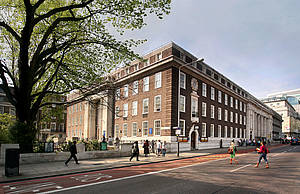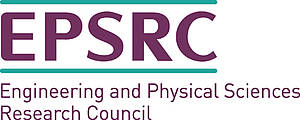The 60th CREST Open Workshop - Those were the DAASE
Date: 3rd and 4th December 2018
Venue: Friends House, 173-177 Euston Road, London, NW1 2BJ

Overview:
DAASE has advanced the state of the art in numerous directions: novel, principled technique for handling class imbalance, optimising energy consumption, automated program repair, automatically generating product roadmaps, to name a few.
DAASE has achieved breakthroughs, including automated software transplantation, the first approach for transplanting code that dynamically adapts it for a new context, and a human-competitive multi-objective software effort estimator that balances accuracy against variance, both of which won Hummies at GECCO. DAASE has pioneered a new field of research called genetic improvement and produced award-winning work on fitness landscape analysis and visualisation.
DAASE has spawned a number of start-ups, most notably Sapienz which Facebook acquired and which now tests and automatically repairs code at Internet scale. Heathrow's plane scheduling now relies on a bespoke optimisation algorithm devised by DAASE researchers. Automated software repair using genetic improvement is also now a part of Janus Manager, a management software for rehabilitation centres in Iceland.
Join us to review and celebrate these accomplishments, and discuss how to carry them forward.
Speakers and schedule:
Day 1 – Monday 3 Dec
10:45 – Pastries
11:15 – Introductions – Earl Barr
11:30 - Bill Langdon, CREST Centre, SSE Group, Department of Computer Science, UCL, UK
Genetic Improvement by Evolving Program Data
12:00 - Darrell Whitley, Colorado State University, USA
Optimal Neuron Selection and Ensemble Based Learning
12:30 – Lunch
13:30 - Mark Harman, CREST Centre, SSE Group, Department of Computer Science, UCL, UK and Facebook
Deploying Search Based Software Engineering with Sapienz at Facebook
14:00 - John Woodward, School of Electronic Engineering & Computer Science, Queen Mary University of London, UK
Genetic Improvement in a Live System
14:30 - Earl Barr, CREST Centre, SSE Group, Department of Computer Science, UCL, UK
Bimodal software engineering
15:00 – Refreshments
15:30 – John Clark, Department of Computer Science, University of Sheffield, UK
Pushing the searchboat out: from quantum software simulation to digital twinning
16:00 – Jeff Kramer, Department of Computing, Imperial College London, UK
The challenge of change
16:30 - Close of day
Day 2 – Tuesday 4 Dec
11:00 – Pastries
11:30 - Justyna Petke, CREST Centre, SSE Group, Department of Computer Science, UCL, UK
Specialising Software Using Genetic Improvement and Code Transplantation
12:00 - Leandro Minku, School of Computer Science, University of Birmingham, UK
A Novel Automated Approach for Software Effort Estimation Based on Data Augmentation
12:30 – Lunch
13:30 - Gabriela Ochoa, Computing Science and Mathematics, University of Stirling, UK
LON Maps: Recent Advances in Local Optima Networks
14:00 - Erwin Pesch, Faculty of Economics and Business Administration, University in Siegen, Germany
Preventing Crane Interferences at Automated Container Terminals
14:30 - David R. White, Department of Computer Science, University of Sheffield, UK
Gin: a Tool for Program Improvement
15:00 – Refreshments
15:30 – Closing remarks
16:00 – Close of day
This workshop is supported by the following sponsors:



Registered Attendees:
1. Earl Barr, CREST Centre, SSE Group, Department of Computer Science, UCL, UK
2. David Clark, CREST Centre, SSE Group, Department of Computer Science, UCL, UK
3. Justyna Petke, CREST Centre, SSE Group, Department of Computer Science, UCL, UK
4. Jeff Kramer, Department of Computing, Imperial College London, UK
5. Leandro Minku, School of Computer Science, University of Birmingham, UK
6. Gabriela Ochoa, Computing Science and Mathematics, University of Stirling, UK
7. Erwin Pesch, Faculty of Economics and Business Administration, University in Siegen, Germany
8. Sandy Brownlee, Computer Science, University of Stirling, UK
9. Saemundur O. Haraldsson, Computer Science, University of Stirling, UK
10. Darrell Whitley, Colorado State University, USA
11. Nahid Shahmehri, Department of Computer Science, Linköping University, Sweden
12. Pavel Reich, School of Electronic Engineering & Computer Science, Queen Mary University of London, UK
13. Bill Langdon, CREST Centre, SSE Group, Department of Computer Science, UCL, UK
14. John Woodward, School of Electronic Engineering & Computer Science, Queen Mary University of London, UK
15. Mark Harman, CREST Centre, SSE Group, Department of Computer Science, UCL, UK
16. David R. White, Department of Computer Science, University of Sheffield, UK
17. John Clark, Department of Computer Science, University of Sheffield, UK
18. Robert White, CREST Centre, SSE Group, Department of Computer Science, UCL, UK
19. Maria Salama, Lancaster University & University of Birmingham, UK
20. Christos Stamatis, Department of Biochemical Engineering, UCL, UK
21. Stephen Cullum, School of Computer Science and Electronic Engineering, University of Essex, UK
22. Emmanuel Letier, SSE Group, Department of Computer Science, UCL, UK
23. Mercedeh Jafarkhanloo Rezaei, School of Electronic Engineering & Computer Science, Queen Mary University of London, UK
24. Jens Krinke, CREST Centre, SSE Group, Department of Computer Science, UCL, UK
25. David Kelly, CREST Centre, SSE Group, Department of Computer Science, UCL, UK
26. David Landsberg, CREST Centre, SSE Group, Department of Computer Science, UCL, UK
27. Mariam Kamkar, Department of Computer Science, Linköping University, Sweden
28. Iason Papapanagiotakis-Bousy, CREST Centre, SSE Group, Department of Computer Science, UCL, UK
29. Chris Simons, Department of Computer Science and Creative Technologies, University of the West of England, UK
30. Sarah Thomson, Computing Science and Mathematics, University of Stirling, UK
31. Michael Barclay, EPSRC
32. Luis Lopez-Bracey, EPSRC
33. Aymeric Blot, CREST Centre, SSE Group, Department of Computer Science, UCL, UK
34. Leo Joffe, CREST Centre, SSE Group, Department of Computer Science, UCL, UK
35. Alexandru Marginean, CREST Centre, SSE Group, Department of Computer Science, UCL, UK
36. Nassim Seghir, CREST Centre, SSE Group, Department of Computer Science, UCL, UK
